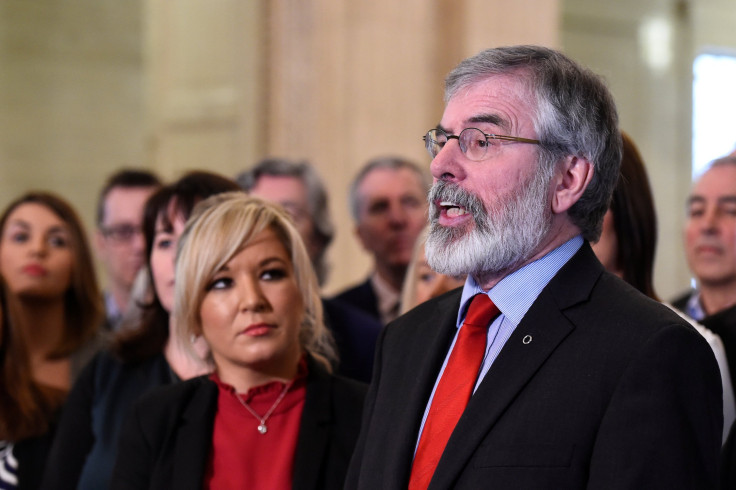What Is Sinn Fein? Election Gains For Northern Ireland’s Nationalist Party Put Links To IRA Terrorists Back In The Spotlight

For the first time since Ireland was partitioned almost a century ago, pro-British unionists no longer hold a majority in Northern Ireland’s local assembly.
In a snap election Saturday, nationalist party Sinn Fein saw a surge in votes to take it to within a single seat of the Democratic Unionist Party (DUP). The result has left the future of Northern Ireland politics in doubt and brought the links between Sinn Fein and the terrorist violence carried out by the militant wing of the Republican movement, the IRA, back into the spotlight.
The dramatic shift has led to urgent talks to try and form a new power-sharing executive, which was mandated in a 1998 peace deal that ended three decades of sectarian violence, known as The Troubles. The parties have three weeks to reach a new agreement or the devolved powers from the British government will be lost.
“The election yesterday was in many, many ways a watershed election,” Sinn Fein President Gerry Adams told reporters in Belfast. “Clearly the notion of a permanent or a perpetual unionist majority has been demolished.
“We need to reflect on that and so do the leaders of unionism and so does everyone on this island.”
Sinn Fein, the former political wing of the IRA which also has a political party in the Republic of Ireland, withdrew from the previous power-sharing agreement in January over First Minister Arlene Foster’s handling of an energy scandal. Sinn Fein has insisted that Foster should not return while an inquiry is ongoing.
Foster survived a bomb attempt on her school bus and saw her father narrowly escape an assassination attempt on her father by the IRA.
Adams has always denied being a member of the IRA, however several former members have alleged he played a prominent role in the group.
“We all know that Gerry was an extremely senior member of the IRA for years,” former IRA member Sean O’Callaghan said in 2015. “You know I've been at IRA meetings with him. Everybody knows it.”
Martin McGuiness, who was the Sinn Fein leader in Northern Ireland and Northern Ireland Deputy First Minister until January, has previously admitted to once being the IRA’s chief of staff but insisted he left the group in 1974. He has refused to say whether he killed people during his time in the IRA.
The new Sinn Fein leader in Northern Ireland, Michelle O'Neil, attracted criticism last month for attending an IRA commemoration.
As it digested its massive gains in the election, Sinn Fein was urged over the weekend to agree to a new inquiry into IRA killings.
“The idea that you can put historical allegations on the back burner to sort out later is not good enough, Conservative MP and former British Army officer Johnny Mercer said. “Clearly this matters to people.”
© Copyright IBTimes 2024. All rights reserved.




















